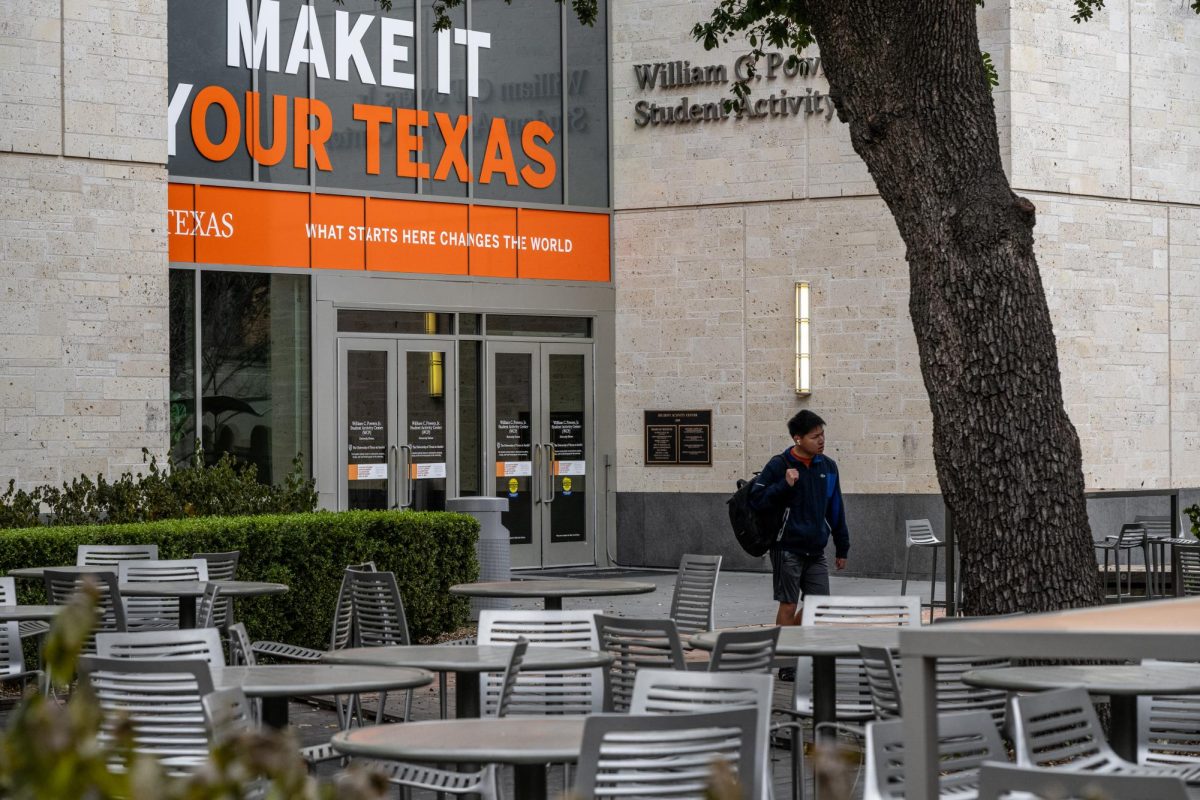The Women’s Community Center replaced the Gender and Sexuality Center on Jan. 1 to comply with Senate Bill 17, which prohibits diversity, equity and inclusion offices and practices at all Texas public universities.
“We understand this change can feel daunting and bring up a lot of emotions for what the future of our center will look like,” the center wrote in an Instagram post on Dec. 15. “We remain committed to serving all of our students, both current and new, and welcoming them into the center.”
The post also said the center will no longer offer training or workshops on sexual orientation and gender identity because of the bill’s requirements. However, students and student organizations may still host events and workshops about the topics.
“It’s probably the best outcome that could have come out of a bill of that nature,” said marine science junior Dani Zanabria. “Of course I want it to be the GSC, but if it’s able to survive in this way, I think that’s best.”
Adelae Tumbusch, a women’s and gender studies senior, said the intersection of gender and sexuality was an important fixture of the GSC.
“(The change) does label it as a women’s community center rather than a community center for people of all genders and sexualities,” Tumbusch said. “It had to become something different, and that was definitely disappointing to me.”
Other public universities in Texas have made similar or more drastic changes to their LGBTQ+ centers, including UT-Arlington, where psychology sophomore Alianna Gavalya transferred from at the beginning of the school year. According to an Instagram post by the UTA Progressive Student Union, the school ceased operations of its only LGBTQ+ program because of the bill.
“To see that (UT-Arlington) is quietly shutting that down is really devastating,” Gavalya said. “All I can say is I hope that UT is going to keep on these staff members so that they can at least serve the student body in whatever capacity they’re allowed to.”
Isabella Thomas, a government and Spanish sophomore, said trainings, which the WWC can no longer offer under SB 17, were one of the GSC services she used the most. Thomas joined a spirit organization during her first semester at UT, where she said she experienced homophobia for the first time. In response, she pushed the organization to implement a DEI board.
“I was on that DEI board my first semester, and the first thing that I did was reach out to the GSC and see if they could come do a training at our organization,” Thomas said. “They came to present an allyship training to us and I got a lot of positive feedback.”
She said she felt a shift in that organization after the training.
Tumbusch said that while her classes often discussed SB 17, the idea of its implementation was so scary that she never thought it would actually happen. After the bill passed, one of her classes asked students to share how they felt.
“The anonymous responses we saw later (were) fear, bigotry and hopelessness, which is just the saddest part,” Tumbusch said. “That community center is, yes, being replaced, but it’s also been brought down.”
Thomas said she feels the center’s new name is exclusionary to other genders and could make students feel less supported. Tumbusch said she believes these changes will cause “more fear, more closeted people and more uncertain myths and discomfort.”
However, Tumbusch said it’s also an opportunity for students and student groups to take the reins. Zanabria, who has visited the GSC since her freshman year, said the GSC has always been a place where people could feel welcome. She said she hopes it will remain that way.
“I do want (people) to know that it’s still a safe place to visit,” Zanabria said. “The community isn’t gone — they’re still there and happily willing to support you in whatever you need.”














